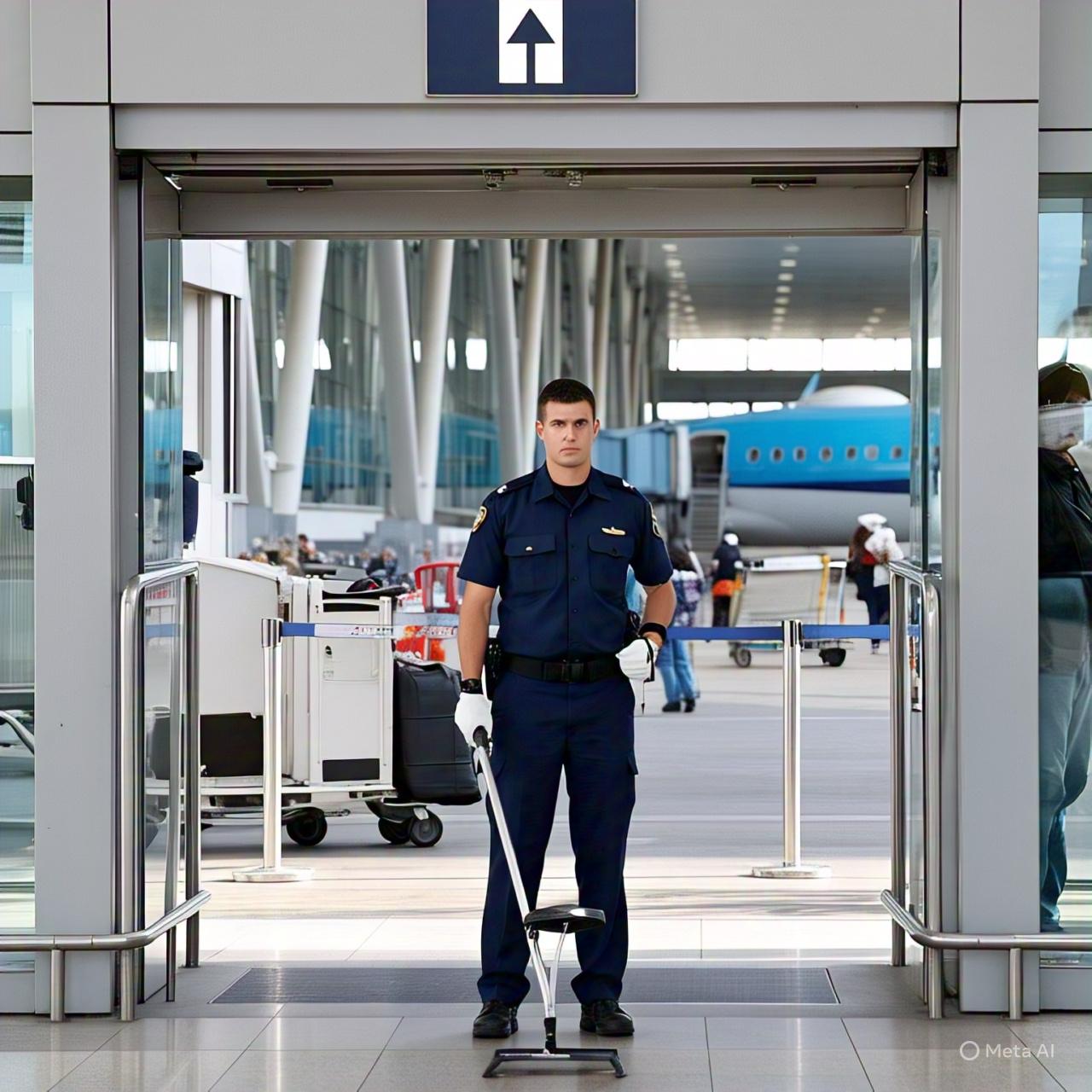The Role of Security Guards in Airport Security

Introduction to Airport Security
Airports are high-traffic zones where safety and order are paramount. Security measures must be rigorous due to the threat of terrorism, smuggling, and unauthorized access. Among the essential personnel in these environments are security guards, who serve as the first line of defense against various threats. Their vigilance ensures the safety of travelers, staff, and critical infrastructure. The role they play goes beyond visible monitoring; they manage crowd control, surveillance, and emergency response. In a constantly evolving threat landscape, airport security must remain proactive, and trained guards are indispensable to that effort.
Why Airports Are High-Risk Locations
Airports are prime targets for unlawful activities due to the volume of passengers and the presence of sensitive facilities. With thousands of travelers passing through every day, the opportunity for security breaches increases. This risk makes it crucial for airports to employ highly trained personnel capable of assessing threats quickly and taking immediate action. Security guards fill this role by providing constant surveillance and maintaining a secure environment. Their work often prevents incidents before they occur, demonstrating the need for a visible and active security presence in such critical infrastructure.
Primary Responsibilities of Airport Security Guards
Security guards in airports have a broad set of duties. They manage access control, inspect luggage, patrol restricted areas, and assist law enforcement when required. Guards are also responsible for monitoring surveillance systems and identifying suspicious behavior. Their tasks demand physical endurance, attention to detail, and advanced communication skills. These responsibilities help create a safe environment for passengers and staff. Unlike law enforcement officers, who may focus more on investigation, guards concentrate on prevention, which is why their role is vital in maintaining continuous vigilance.
Controlling Access Points and Secured Areas
Access control is a significant aspect of airport security. Security guards are stationed at various checkpoints to prevent unauthorized entry into secure areas such as runways, control towers, and baggage handling zones. Their presence deters potential intruders and ensures only accredited personnel can enter sensitive locations. Guards use identification checks, metal detectors, and biometric systems to verify credentials. This routine is crucial in protecting operational systems and maintaining airport integrity. When access control is compromised, the risk to flight operations and passenger safety increases dramatically.
Crowd Management and Conflict Resolution
Managing large crowds efficiently is essential at airports, particularly during peak travel times or emergencies. Security guards ensure smooth passenger flow and intervene during disputes or panic situations. Their training equips them to de-escalate tense situations, minimizing disruption. Guards also assist passengers who are lost or in distress, providing information and support. This proactive engagement builds a sense of safety and order in busy terminals. Without effective crowd control, even a minor issue can escalate into a crisis, making the guard's presence crucial.
Screening and Surveillance Monitoring
Security guards work alongside airport screening teams to check baggage and monitor passenger behavior. They assist with the inspection of luggage and the detection of prohibited items. Surveillance monitoring is another key responsibility. Guards often manage CCTV systems that provide a real-time view of airport activities. These systems are critical in identifying threats before they escalate. Their ability to interpret behavior patterns and spot anomalies is fundamental to preventing unlawful acts, such as theft, sabotage, or unauthorized access to aircraft or cargo.
Emergency Response and Evacuation Support
In emergency scenarios—such as fire outbreaks, bomb threats, or medical emergencies—security guards play a central role in response efforts. They follow pre-established protocols to evacuate areas quickly and safely. Guards are trained to remain calm under pressure, direct crowds, and liaise with emergency services. Their presence ensures the emergency is handled efficiently, reducing risk to life and property. This preparedness for the unexpected highlights their critical function beyond routine duties. Having dedicated security professionals ready to respond immediately is a key part of an airport’s crisis management plan.
Collaboration with Law Enforcement Agencies
Security guards often act as the communication bridge between airport authorities and law enforcement. They support police investigations, provide witness statements, and maintain the integrity of evidence when necessary. Their observations during patrols or from surveillance feeds are often crucial in identifying suspects. In certain jurisdictions, airport guards may even hold limited law enforcement authority, such as detaining suspicious individuals until authorities arrive. This collaboration ensures a coordinated and swift response to any breach or incident, significantly improving security outcomes.
Preventing Unauthorized Entry and Intrusions
Preventing unauthorized entry is a cornerstone of effective airport security. Security guards conduct patrols around fences, runways, and restricted terminals to deter breaches. They are trained to respond immediately to perimeter alarms or breaches. Intrusions can result in delayed flights, evacuation procedures, and significant security risks. With an increased focus on perimeter security, some airports now rely on professional aviation security teams, including those provided by experienced guard services, to minimize vulnerability around critical zones.
The Importance of Professional Training
Airport security guards undergo rigorous training to perform effectively in high-pressure environments. Training includes conflict resolution, emergency response, X-ray machine operation, and counter-terrorism awareness. Their preparedness ensures that they not only react swiftly to threats but also proactively identify potential risks. Guards are often required to complete ongoing training to stay updated with evolving threats and technologies. Investing in well-trained personnel leads to more secure airports and a better travel experience for passengers.
Use of Technology in Modern Guard Operations
Technology has transformed how security guards operate in airports. From biometric scanners to artificial intelligence in CCTV analysis, guards now have access to advanced tools that enhance surveillance. Mobile communication systems and body-
- Art
- Causes
- Crafts
- Dance
- Drinks
- Film
- Fitness
- Food
- Games
- Gardening
- Health
- Home
- Literature
- Music
- Networking
- Other
- Party
- Religion
- Shopping
- Sports
- Theater
- Wellness


